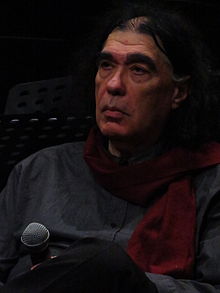
This article has multiple issues. Please help improve it or discuss these issues on the talk page . (Learn how and when to remove these messages)
|
Iancu Dumitrescu (born 15 July 1944) is a Romanian avant-garde composer.

This article has multiple issues. Please help improve it or discuss these issues on the talk page . (Learn how and when to remove these messages)
|
Iancu Dumitrescu (born 15 July 1944) is a Romanian avant-garde composer.
Dumitrescu was born in Sibiu, Romania. He received a master's degree in composition in Bucharest, where his teachers included Alfred Mendelsohn. Later, he studied conducting and philosophy with Sergiu Celibidache, who led Dumitrescu to engage with the philosophy of Edmund Husserl and apply the principles of phenomenology to music. [1]
He began composing his mature works in the early 1970s. In 1976 he founded the Hyperion Ensemble, which he describes as "a multimedia group dedicated to experimental music". Several of Dumitrescu's early works for solo contrabass were recorded by the noted avant-garde bassist Fernando Grillo.
Dumitrescu has composed a large body of works for acoustic instruments and ensembles as well as works combining acoustic and electronic sounds and works composed entirely using tape or computer. In its emphasis on long tones that undergo transformations of timbre, Dumitrescu's music can be loosely grouped with that of Italian composer Giacinto Scelsi and with the spectral music of fellow Romanian Horațiu Rădulescu and the French composers of the spectral school.
Dumitrescu describes his music as "acousmatic" but disclaims a relationship with the acousmatic music of French musique concrète pioneer Pierre Schaeffer. He accepts the "spectralist" label, though he distinguishes his work from some others in the spectral school in that it is not serial. Dumitrescu has said that "I think of myself as a spectralist, but in completely different way from the French". [2]
Dumitrescu was married to fellow composer Ana-Maria Avram (1961–2017); they have more than 20 joint CD releases on their Edition Modern label. Recordings of Dumitrescu's works have also been released by Edition RZ, ReR Megacorp, Generations Unlimited, and other record labels. He is represented by Editions Salabert.
Musique concrète is a type of music composition that utilizes recorded sounds as raw material. Sounds are often modified through the application of audio signal processing and tape music techniques, and may be assembled into a form of sound collage. It can feature sounds derived from recordings of musical instruments, the human voice, and the natural environment as well as those created using sound synthesis and computer-based digital signal processing. Compositions in this idiom are not restricted to the normal musical rules of melody, harmony, rhythm, and metre. The technique exploits acousmatic sound, such that sound identities can often be intentionally obscured or appear unconnected to their source cause.
20th-century classical music is art music that was written between the years 1901 and 2000, inclusive. Musical style diverged during the 20th century as it never had previously, so this century was without a dominant style. Modernism, impressionism, and post-romanticism can all be traced to the decades before the turn of the 20th century, but can be included because they evolved beyond the musical boundaries of the 19th-century styles that were part of the earlier common practice period. Neoclassicism and expressionism came mostly after 1900. Minimalism started later in the century and can be seen as a change from the modern to postmodern era, although some date postmodernism from as early as about 1930. Aleatory, atonality, serialism, musique concrète, and electronic music were all developed during the century. Jazz and ethnic folk music became important influences on many composers during this century.

Timothy "Tim" George Hodgkinson is an English experimental music composer and performer, principally on reeds, lap steel guitar, and keyboards. He first became known as one of the core members of the British avant-rock group Henry Cow, which he formed with Fred Frith in 1968. After the demise of Henry Cow, he participated in numerous bands and projects, eventually concentrating on composing contemporary music and performing as an improviser.
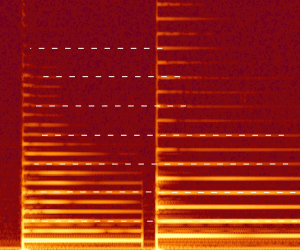
Spectral music uses the acoustic properties of sound – or sound spectra – as a basis for composition.
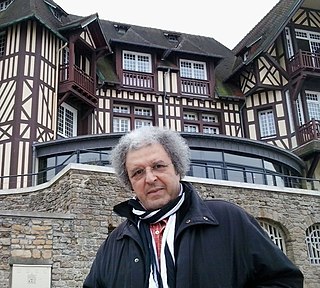
Costin Petrescu is an architect, graphic artist, percussionist and Romanian-French composer.
Horațiu Rădulescu was a Romanian-French composer, best known for the spectral technique of composition.
Hyperion Ensemble is a Romanian chamber music ensemble based in Bucharest. It was founded in 1976 by composer Iancu Dumitrescu and specializes in the performance of contemporary classical music. In particular, it is the main proponent of spectral music in Romania. The Ensemble's performances have been described as hyper-spectralist, transformational and acousmatic.

John Palmer (1959) is a British composer, pianist, and musicologist, also known as a university professor. He has held teaching positions in England, Switzerland and Germany and has delivered masterclasses across universities and music conservatories throughout Europe. His music is published by Composers Edition.
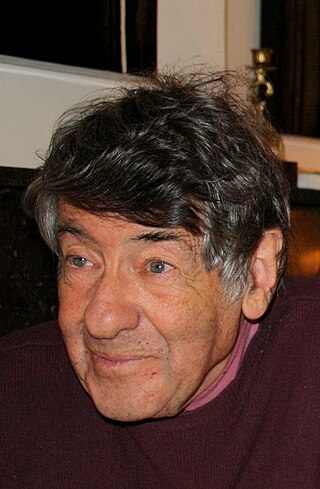
Harry Halbreich was a Belgian musicologist.
Experimental music is a general label for any music or music genre that pushes existing boundaries and genre definitions. Experimental compositional practice is defined broadly by exploratory sensibilities radically opposed to, and questioning of, institutionalized compositional, performing, and aesthetic conventions in music. Elements of experimental music include indeterminacy, in which the composer introduces the elements of chance or unpredictability with regard to either the composition or its performance. Artists may approach a hybrid of disparate styles or incorporate unorthodox and unique elements.
Ana-Maria Avram (1961–2017) was a Romanian composer, pianist, conductor and musicologist.

Elio Martusciello is an Italian experimental music composer and performer, principally on guitar and computer. He has studied photography with Mimmo Jodice and visual art with Carlo Alfano, Armando De Stefano and Rosa Panaro. He is a self-taught musician/composer and teaches "electronic music" at Conservatory of Music, Napoli, Italy. His compositional aesthetics are derived from acousmatic issues, but in addition to acousmatic composition he composes for instruments and live electronics, sound installation, multi-media works, audiovisual art and computer music improvisation. He lives in Napoli, Italy.
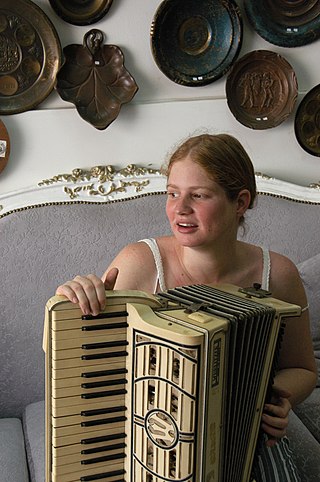
Maya Dunietz, is an Israeli musician and artist, combining a solo career with collaborations with renowned musicians: Emahoy Tsegué-Maryam Guèbrou, Roscoe Mitchell, John Tilbury, Habiluim, and many others. Her works are exhibited in venues such as Centre Pompidou Paris, Athens Onassis Center, Frac Paca, CCA Tel Aviv and Bemis Center for Contemporary Art.
Richard David Carrick is an American composer, pianist and conductor. He was a Guggenheim Fellow in Music Composition for 2015–16 while living in Kigali, Rwanda. His compositions are influenced by diverse sources including traditional Korean Gugak music, the flow concept of Mihaly Csikszentmihalyi, Gnawa Music of Morocco, Jazz, experimental music, concepts of infinity, the works of Italo Calvino and Ludwig Wittgenstein, and his work as improviser.

Daniel Buess was a Swiss drummer, percussion player and sound artist from Basel.
Iancu may refer to:

Marcin Stańczyk – Polish composer, lawyer, pedagogue and music theorist. Laureate of numerous awards, the only Pole to receive the Toru Takemitsu Award. Author of symphonic, chamber, stage, electronic and film music. Creator of multimedia and intermedia spectacles.